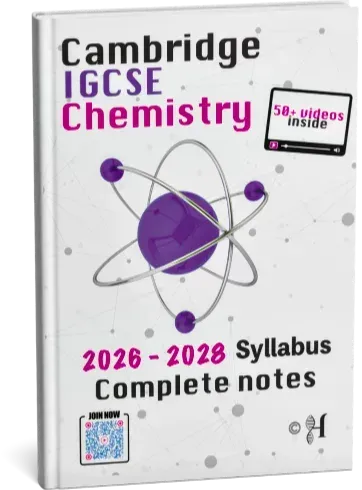Don't make these mistakes when moving from IGCSE to A-levels
Your complete guide for transitioning to A-levels

Hey friends! If you're reading this, you're probably about to embark on one of the most significant academic transitions of your life: moving from IGCSE to IAL. This journey is both exhilarating and daunting, but don't worry – I've got your back. Drawing from personal experiences and lessons learned by others, let's dive into how to make this transition as smooth as possible.
The Big Jump: From IGCSE to IAL
The leap from Year 11 to Year 12 was, honestly, one of the most stressful times of my life. The shift from doing pretty much the same GCSEs as everyone else to focusing on three or four very specific IAL subjects was quite a challenge. It felt like a massive responsibility because the choices I made would directly impact my future in a significant way.
Expect to Be Humbled
One of the biggest mistakes I made was not being humble enough. I found GCSE Maths quite easy, so I expected IAL Maths and Further Maths to be a breeze. Spoiler alert: I was wrong. While normal Maths was manageable, Further Maths was a different beast altogether. For the first couple of months, I struggled to grasp the concepts, and my grades reflected that – I was getting Bs and Cs. It was a humbling experience, but it taught me the importance of resilience and the willingness to adapt. If you're finding a subject particularly challenging, don't be afraid to switch to something that aligns better with your strengths and interests.
Don't Waste Your Free Periods
The first few months of Year 12 were genuinely overwhelming. Balancing the increased difficulty of IALs, university preparations, and a social life was no easy feat. I wasted too many free periods just sitting around with friends. If I had used that time more wisely – studying, working on my personal statement, or engaging in extracurricular activities – I would have been in a much better position by the end of Year 12 and the beginning of Year 13. So, make the most of your free periods. Even 15 minutes of focused study can add up to significant progress over time.
Common Mistakes to Avoid
Overconfidence
Just because you aced your IGCSEs doesn't mean you'll breeze through IALs. The content is more in-depth and requires a deeper understanding. It's easy to coast through Year 10 and cram in Year 11, but that strategy won't cut it for IALs. You need to stay consistent with your studies from the get-go.
Underestimating the Difficulty
On the flip side, don't psych yourself out by thinking IALs are impossibly hard. Yes, the workload is heavier, and the exams are more challenging, but if you've been accepted into an IAL program, you're capable of handling it. The first few weeks might be tough as you adjust, but stay confident and keep pushing forward.
Not Taking Ownership of Your Learning
IALs require a higher level of independence. Your teachers are there to guide you, but ultimately, it's up to you to take charge of your learning. This means doing additional reading, practicing past papers, and seeking out resources that can help you understand the material better. Websites like Isaac Physics and A-Level Physics Online are great for supplementing your studies.
Tips for Success in IAL
Develop Effective Study Habits
Find a study method that works best for you. Whether it's mind maps, flashcards, or teaching the content to someone else, knowing your preferred revision technique will save you a lot of time and stress. You'll be hit with a lot of exams quickly, so being prepared is key.
Make the Most of Your Free Periods
Use your free periods wisely. This is precious time that can be used to review notes, work on assignments, or prepare for upcoming tests. Minimizing distractions and focusing during these periods can make a significant difference in your academic performance.
Revise for Every Test
Treat every test and end-of-topic assessment seriously. These tests not only help you identify your weaknesses but also prepare you for the final exams. Consistent revision will make the end-of-year exams less daunting.
Understand the Importance of UCAS Exams
The end-of-Year 12 UCAS exams are crucial as they determine your predicted grades for university applications. Aim to do well in these exams because they will significantly impact your chances of getting into your desired university.
Research University Entrance Exams
If you're considering courses like engineering, medicine, or dentistry, you'll need to prepare for entrance exams. Start your research early and give yourself ample time to study for these exams. Knowing what's ahead will help you manage your time and expectations better.
Build Strong Relationships with Teachers
In sixth form, teachers tend to be more approachable and supportive. Don't hesitate to ask them for help or additional resources. They are experts in their subjects and can provide valuable insights and guidance.
Embrace Change and Enjoy the Journey
Year 12 is a time of significant change. You'll meet new people, make important life choices, and mature significantly. Embrace these changes and make the most of your time. Be mindful that your high school years are limited, and cherish the moments you have with your friends.
In summary, transitioning from IGCSE to IAL is challenging but manageable with the right mindset and strategies. Stay humble, work consistently, take ownership of your learning, and make the most of the resources available to you. Good luck, and enjoy the journey!
Try a free Class
IGCSE and IAL Guide for 2025 - 2026 Exams

















